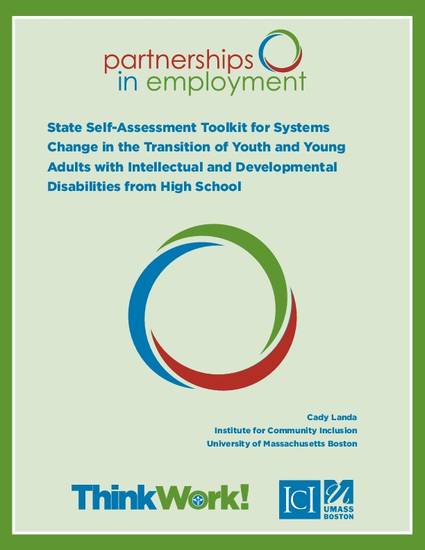
This self-assessment tool was developed for those who wish to embark on state-wide governmental systems change to improve high school transition and employment outcomes for youth and young adults with intellectual and developmental disabilities (IDD). Its purpose is to aid in the development of a work plan that is based on a review of the state policies, practices, and strategies that impact transition from school and opportunities for competitive integrated employment of youth and young adults with IDD.
This tool incorporates research identifying elements of state government that support high rates of participation in integrated employment (Hall et al., 2007), research on predictors of positive employment outcomes for young adults with IDD (NTACT, 2016), and the experience of the eight states that were 2011–2012 awardees of the Administration on Intellectual and Developmental Disabilities Partnerships in Employment (PIE) Transition Systems Change grants. These states include Alaska, California, Iowa, Mississippi, Missouri, New York, Tennessee, and Wisconsin. Information on PIE and its implementation in these states can be found at www.thinkwork.org/partnerships-employment.
When it comes to employment, this document prioritizes competitive integrated employment, defined as full-time or part-time work at minimum wage or higher, with wages and benefits similar to those of people without disabilities performing the same work, and full integration with co-workers without disabilities. In the course of using this toolkit, please distinguish competitive integrated employment from other types of employment outcomes in which employees earn less than minimum wage or are not fully integrated with workers who do not have disabilities.
Available at: http://works.bepress.com/CadyLanda/7/